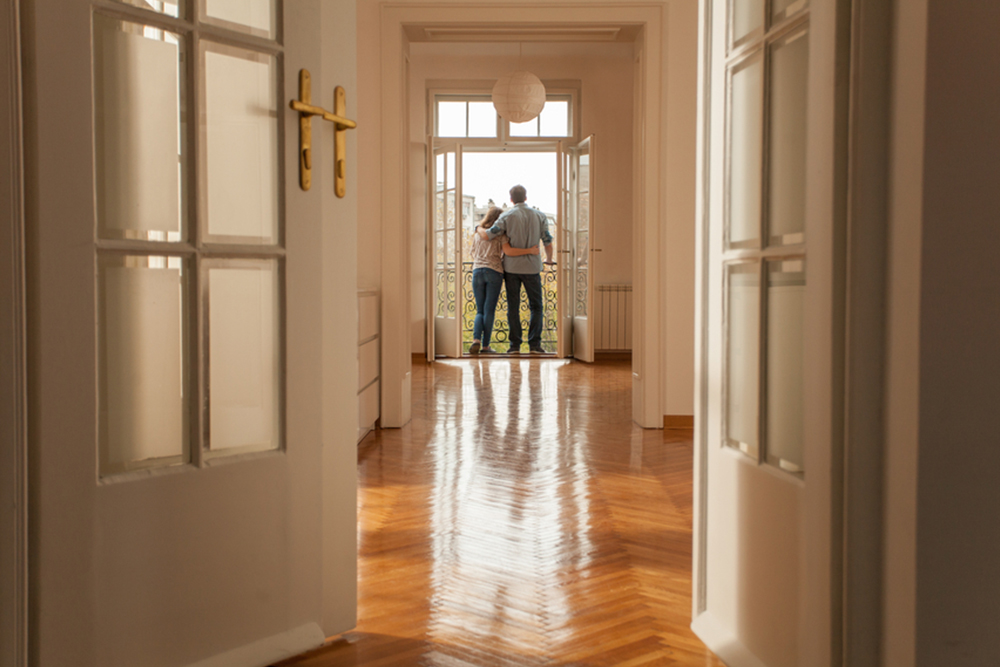For many, buying a house can be a big leap into adulthood, especially if you’re transitioning from renting a downtown studio to owning a four-bedroom Colonial on a cul-de-sac. Enter the idea of a starter home.
Starter homes are bought with the intention of making them a transitional home: not your “forever home” but a comfortable spot to set down roots for a while, maybe until you start a family or your career takes off. “For first-time homebuyers, finding a suitable property as a starter home that is affordable and offers the necessary amenities without the excess burden of extra maintenance can be a challenge,” says Ross Anthony, a real estate agent with Willis Allen Real Estate in San Diego.
Whether it’s a townhouse for sale in Austin, TX, or a single-family abode in the ’burbs, here are the top five standout characteristics of a great starter home.
Low maintenance costs
You may think you know all of the expenses that come with a new home, but as a novice homeowner, don’t be surprised if you get hit in the first six months alone with extra expenses you didn’t expect, such as paying someone to mow your lawn, pick up your trash, or winterize your pool in October. Most of these expenses will be for landscaping and care on the outside of your home.
Combat high maintenance costs by looking for a starter home with less outside space. “It’s almost always lower maintenance and offers the freedom of leaving for a few days with minimal preparation or planning,” says Anthony. “Developments with common-area yards that are maintained by the homeowners’ association will offer the benefit of having a space outside to enjoy or walk the dog, but are not the owner’s responsibility to maintain.”
Ideal location
The age-old rule of thumb when it comes to real estate — location, location, location — rings true for starter homes too. “Pick a smart location,” says Josh Altman, a Los Angeles–based real estate agent and author of It’s Your Move. “Consider resale but also make sure you like the area for some practical reasons, like cool stores and restaurants or proximity to your office. It’s not just an investment; it is a home.”
Easy lifestyle transition
Moving from an apartment in a bustling area straight to a single-family home can be a jarring adjustment: Suddenly, you can’t walk to your favorite coffee shop, and the sounds of late-night partyers are replaced by crickets. So sometimes the best starter home is one that feels similar to what you just came from. “Living in a condo or townhouse is somewhat similar to living in an apartment community,” explains Brad Pauly, a real estate professional with Pauly & Presley Realty in Austin, TX. “Condo and townhouse communities offer similar traits in regards to neighbors and amenities. This makes for an easier transition into homeownership.”
Budget-friendly
The biggest deciding factor of what home you end up buying is whether you can actually afford it. “Don’t bite off more than you can chew,” advises Altman. “Don’t go too big, and make sure you can afford it.” The best way to figure out if you can, in fact, afford the mortgage on your desired starter home is to use a mortgage calculator, which breaks down a monthly payment based on insurance, taxes, and more.
Manageable care and upgrade costs
Can you handle what it takes to care for this home? “Know your strengths,” advises Altman. “Maybe you’re not that handy, in which case, don’t buy a fixer-upper.” In fact, Matthew Kennedy, a licensed Realtor for Coldwell Banker Burnet, says most new homeowners should go with something turnkey. “I highly recommend that most first-time homebuyers purchase a move-in-ready home,” says Kennedy. “Otherwise, leave the distressed properties to the professionals. Oftentimes, I see buyers who are armed with Pinterest ideas and have watched too many DIY TV shows on HGTV, who are disillusioned with the idea that renovating a home is inexpensive, quick, and easy.”
If you’re (very) handy or happen to have a contractor in the family, a fixer-upper or home in need of minor repairs may be a viable option. But if this is your first foray into major home improvement, stick with a more move-in-ready space with one or two upgrades that you can attempt yourself — such as a DIY backsplash or replacing the ceiling fans. You’d be surprised how quickly the time (and budget) you allotted for the project can double.
What are you looking for in a starter home? If you’re already a homeowner, what advice would you have given yourself when looking for that first place? Share in the comments!


